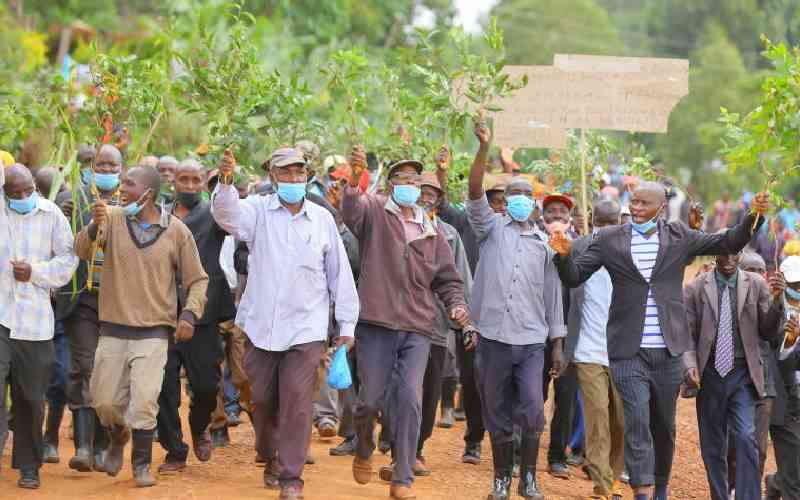NAIROBI: Kenya is likely to further lose its clout as an ideal investment destination in the region. This is after a World Bank review indicated that Rwanda now shares the same position with Kenya on policy reforms aimed at spurring growth.
The improvement touches on policy and institutional reforms which support growth and reduce poverty in Africa. According to the World Bank's latest Country Policy and Institutional Assessment (CPIA) Africa report, the two countries scored an average 3.8 out of six. "More policy reforms lifted Rwanda's CPIA score to 3.9, putting it at the top of the CPIA list alongside Cabo Verde and Kenya," the report indicates. The review dissects progress made in improving the overall quality of government policies and institutions to spur better development outcomes.
It supports growth and aims at reducing poverty in low-income economies. The findings might further give Rwanda a competitive advantage after the same institution ranked Rwanda among the top 50 countries in the ease of doing business, with Kenya ranking at position 129 out of 189 economies.
The CPIA scores countries on a scale of 1–6 with 6 as the highest and one as the lowest using 16 indicators in four areas to determine a country's final score. These areas include economic management, structural policies, policies for social inclusion and equity, and public sector management and institutions.
The scores are primarily used to determine the allocation of zero-interest financing scores for the countries eligible for support from the International Development Association (IDA), the World Bank Group's concessional fund for the world's poorest countries. "There is still a lot of work to be done in Africa to meet the region's needs for effective public services, and transparent and efficient government operations," said Francisco Ferreira, Chief Economist, World Bank Africa Region.
Ferreira noted that CPIA as a valuable resource for governments, private sector, civil society and researchers, adding that the media ought to monitor a country's progress and benchmark it against progress in other countries. Burkina Faso, Senegal and Tanzania followed close behind, each with a score of 3.8. The Democratic Republic of Congo achieved the largest gain, boosting its score from 2.7 to 2.9.
South Sudan and Eritrea — both countries struggling with political and institutional challenges had the lowest score of 2.1 and 2.0, respectively. Countries throughout the region continued to score the highest in the area of economic management.
 The Standard Group Plc is a
multi-media organization with investments in media platforms spanning newspaper
print operations, television, radio broadcasting, digital and online services. The
Standard Group is recognized as a leading multi-media house in Kenya with a key
influence in matters of national and international interest.
The Standard Group Plc is a
multi-media organization with investments in media platforms spanning newspaper
print operations, television, radio broadcasting, digital and online services. The
Standard Group is recognized as a leading multi-media house in Kenya with a key
influence in matters of national and international interest.
 The Standard Group Plc is a
multi-media organization with investments in media platforms spanning newspaper
print operations, television, radio broadcasting, digital and online services. The
Standard Group is recognized as a leading multi-media house in Kenya with a key
influence in matters of national and international interest.
The Standard Group Plc is a
multi-media organization with investments in media platforms spanning newspaper
print operations, television, radio broadcasting, digital and online services. The
Standard Group is recognized as a leading multi-media house in Kenya with a key
influence in matters of national and international interest.








